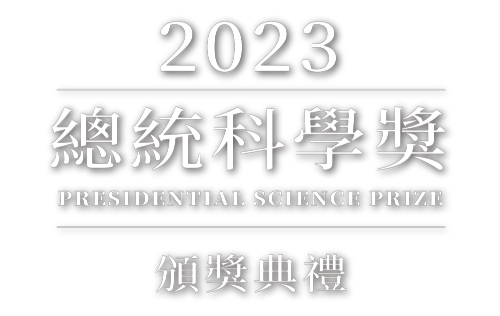PREVIOUS AWARDS
2019 AwardeesAcademicianYuan-Pern Lee
- Article Category: PREVIOUS AWARDS
- Post Date: 2023/08/30
Mathematics and Physical Science Category ─ Yuan-Pern Lee
A Passion for Exploring the Foundation of Nature
Developed World - class Research in Taiwan
Professor Yuan-Pern Lee was born in Hsinchu in 1952. After graduating from the Department of Chemistry in National Taiwan University and serving in the military for two years, he went to the University of California in Berkeley, USA to pursue his Ph.D. Under the guidance of Professor George C. Pimentel, a well-recognized leader in chemical research, Professor Lee began his long journey of research in the field of free radicals.
After completing his Ph.D. and post-doctoral research for two years, Professor Lee returned to Taiwan in 1981 to serve as an associate professor in the Department of Chemistry at National Tsing Hua University. In Taiwan, few persons were then conducting contemporary fundamental experiments related to physical chemistry; the environment was not accommodating, but Professor Lee played a key role along the way, laying a strong foundation for contemporary fundamental science education and research in Taiwan -- he made a far-reaching impact.
Professor Lee’s contributions to education include creating a modern course of physical chemistry in Tsing Hua University. He was the first to introduce chemical dynamics, laser chemistry, physical chemistry research techniques and laser chemistry experiments, and to introduce highresolution Fourier-transform infrared spectroscopy (FTIR) in Taiwan. He also trained many physical chemists in Taiwan who proceeded to make outstanding achievements and to form the backbone of industry and academe in this field.
Professor Lee has also made an outstanding performance and contribution in administrative work. During his tenure as the Director of the Instrumentation Center at Tsing Hua University from 1991 to 2003, Professor Lee expanded the number of instruments from 12 to 28 and added many of the most advanced instruments in the fields of chemistry, biology, and material analysis so as to provide great resources and the best instruments for the nation’s scientists to conduct research. These efforts were critical in improving Taiwan’s research environment.
After transferring to National Chiao Tung University in 2004, Professor Lee served as Dean of the College of Science from 2005-2008, and greatly improved the quality of research and internationalization. His efforts included striving for the funding, planning and construction of the Fundamental Science Education and Research Building, assistance in the establishment of OCW (OpenCourseWare), establishing a Bachelor of Science in Interdisciplinary Science, recruiting outstanding college students to conduct cross-disciplinary science training, and offering opportunities for foreign exchange study to these students.
Professor Lee served also as Director of Center for Interdisciplinary Science (CIS) funded by the Aiming for the Top University Program of the Ministry of Education from 2006 to 2017. He organized several inter-disciplinary research teams dedicated to renewable energy, bio-sensing, and emergent materials or devices that are vital to the country’s economy: the results have been outstanding.
He has recruited many foreign professors and promoted international exchanges and cooperation in his efforts to facilitate the internationalization of National Chiao Tung University. These professors not only brought unique technology and research topics of the world to Taiwan but also assisted scientists and research institutions in Taiwan, Japan, and other countries to establish extensive and profound exchanges and partnerships, so as to enhance Taiwan’s international academic status and internationalization.
In academic research, since returning to Taiwan Professor Lee has made important contributions in the field of free-radical spectroscopy, kinetics and dynamics. Over the years, Professor Lee has identified over 100 new free radicals or new spectra that are important in atmospheric chemistry, combustion chemistry or astronomical chemistry; he consequently became highly recognized internationally.
He is the leader in p-H2 matrix isolation and step-scan FTIR absorption techniques and was elected a fellow of American Physical Society (1999), an Academician of Academia Sinica (2008), and a fellow of the Third World Academy of Science (TWAS) (2011). In recent years he has received numerous awards, including the Honda-Fujishima Award of Japan Photochemistry Society in 2016, the Humboldt Research Award in 2017, and the George C. Pimentel Prize, the highest honor in matrix isolation, in 2018.
He is the first in the world to develop step-scan FTIR gaseous absorption spectroscopy and a pioneer in the study of transient infrared absorption of gaseous free radicals, using this technique to detect the spectra of many radicals for the first time. A key contribution was his first recording of the infrared spectrum of the Criegee intermediate and the discovery of its rapid self-reaction, which has driven the research in this field worldwide. The Criegee intermediate is an important atmospheric chemical reaction intermediate proposed over 60 years ago, and is closely related to the disappearance of ozone in the atmosphere and the generation of hydroxyl radicals and aerosols. The discovery by Professor Lee has established important milestones for related research.
In terms of para-hydrogen matrix isolation, he applied solid para-hydrogen (p-H2) as a novel matrix host to develop many new applications, making him a leader in this field. He recently applied electron guns to produce protonated polycyclic aromatic hydrocarbons (PAH) to examine their infrared spectra and to speculate on the source of some unidentified infrared (UIR) emission bands in outer space. He developed also a highly efficient method for the reactions of atomic hydrogen to study the hydrogenation of important molecules in outer space and to explain some mysteries of astronomical observations over the years. These efforts have made a significant contribution to interstellar chemistry. All these results arose from Professor Lee’s unrelenting efforts over the years, which not only made outstanding contributions to Taiwan’s scientific research and education but also proved that Taiwan is capable of creating world-class research and should be proud of its advancements.





